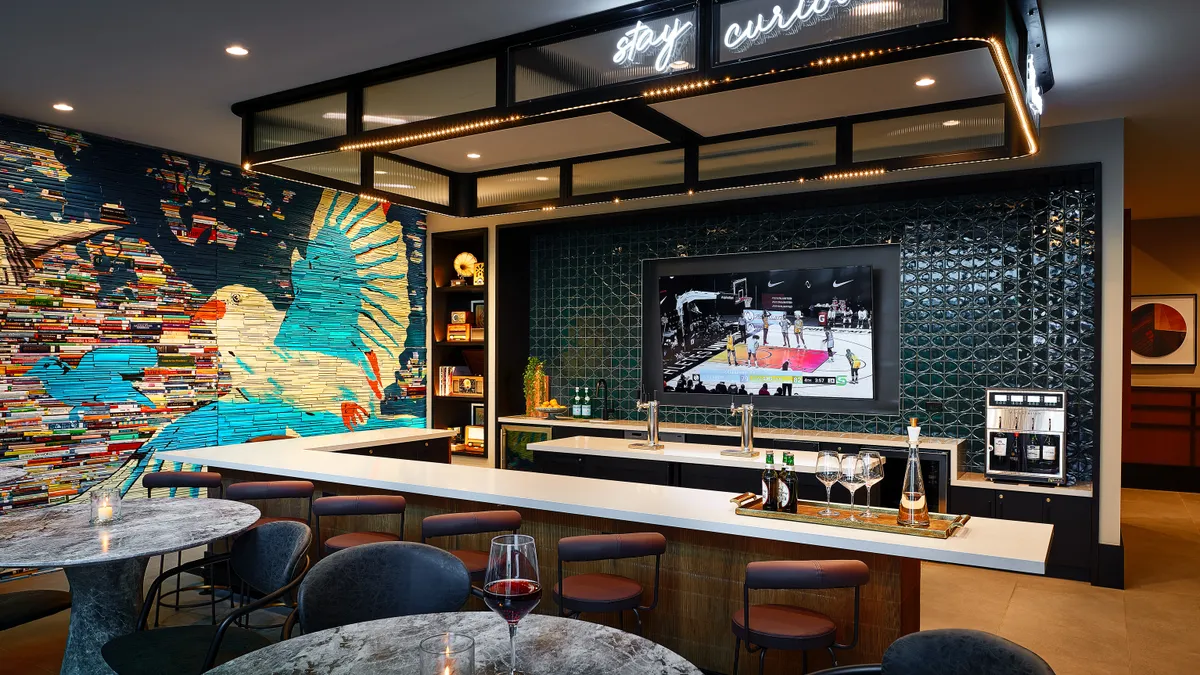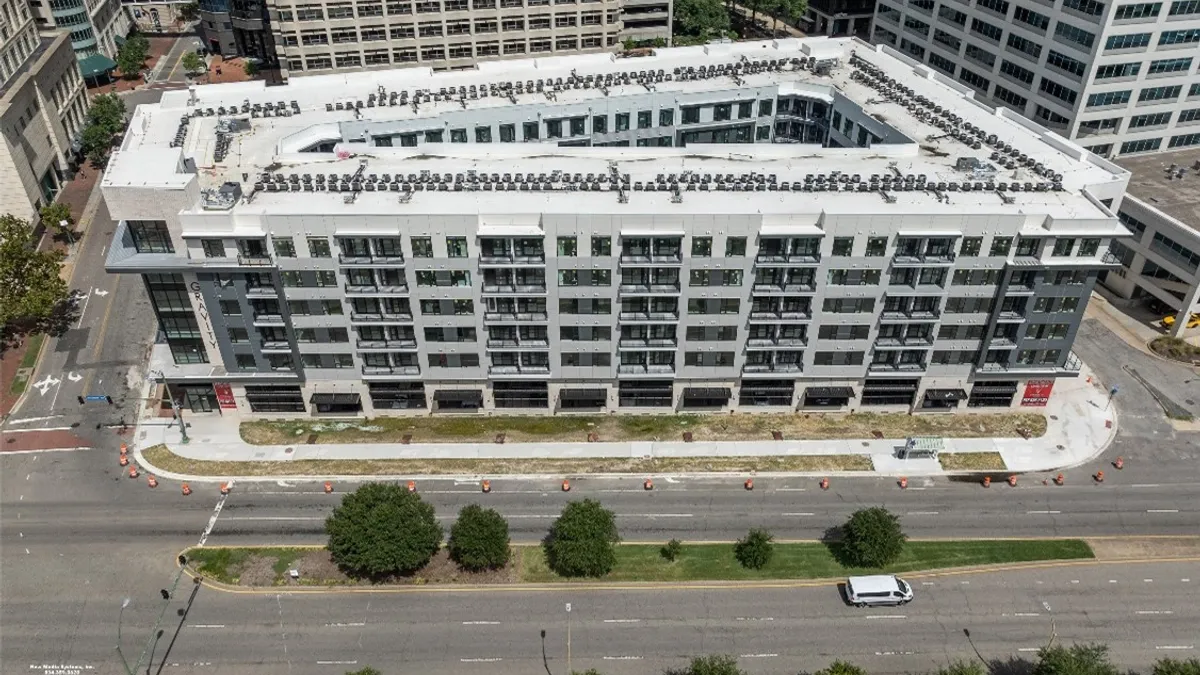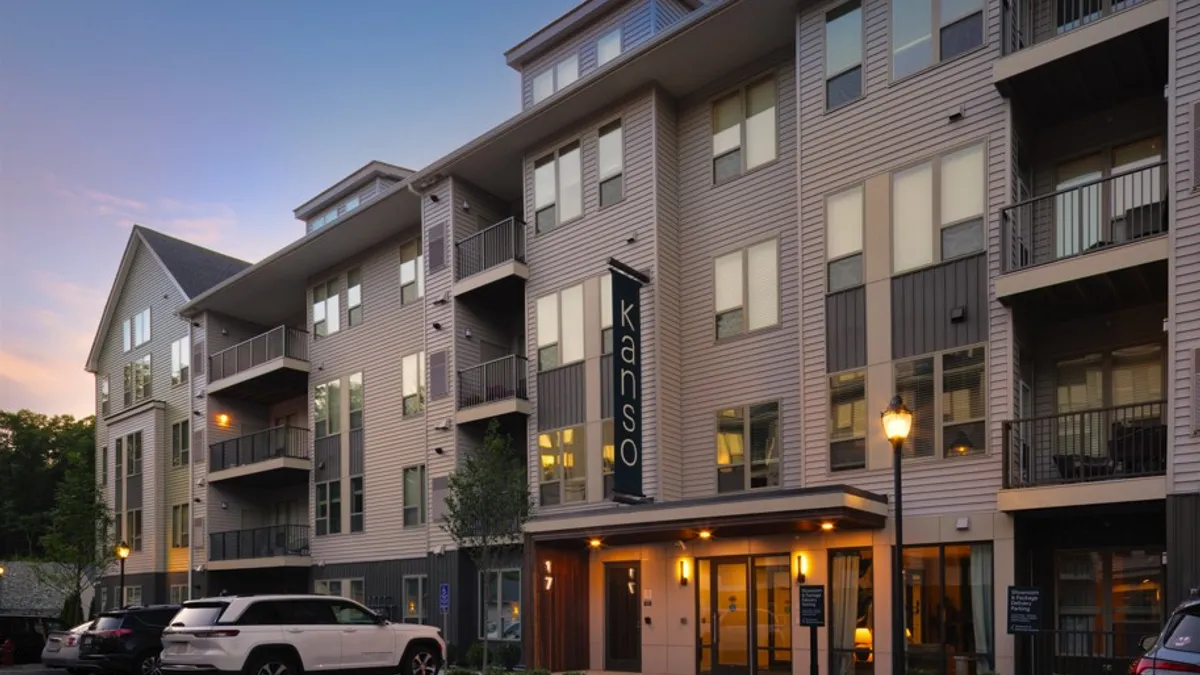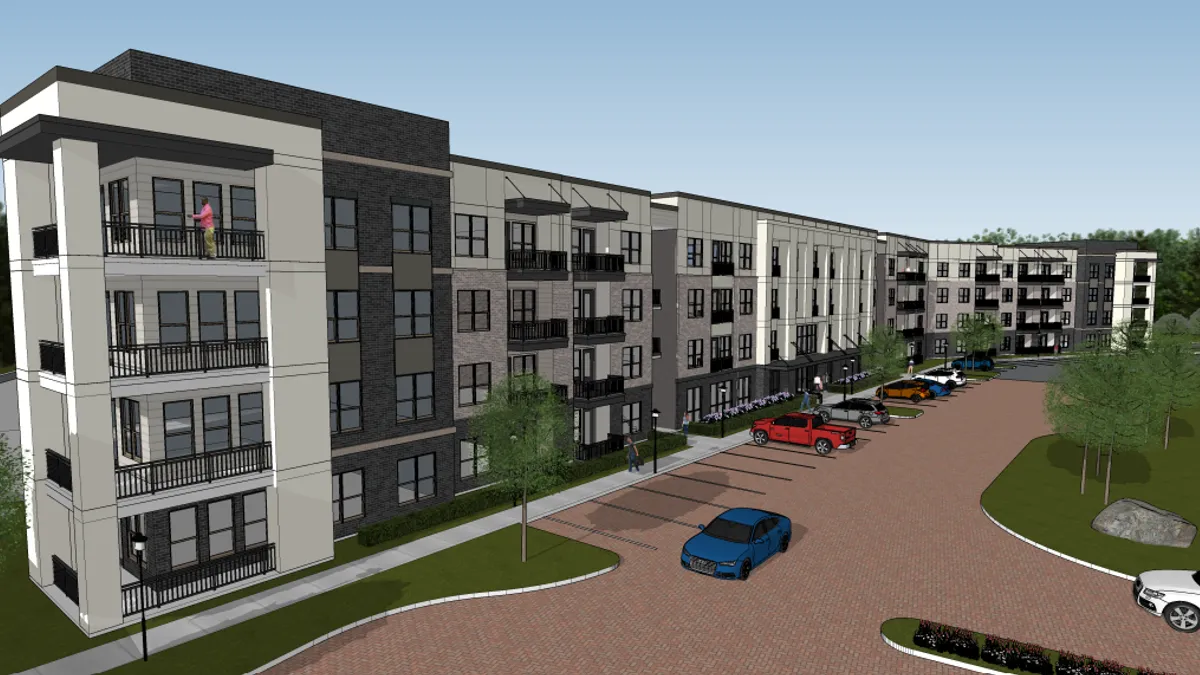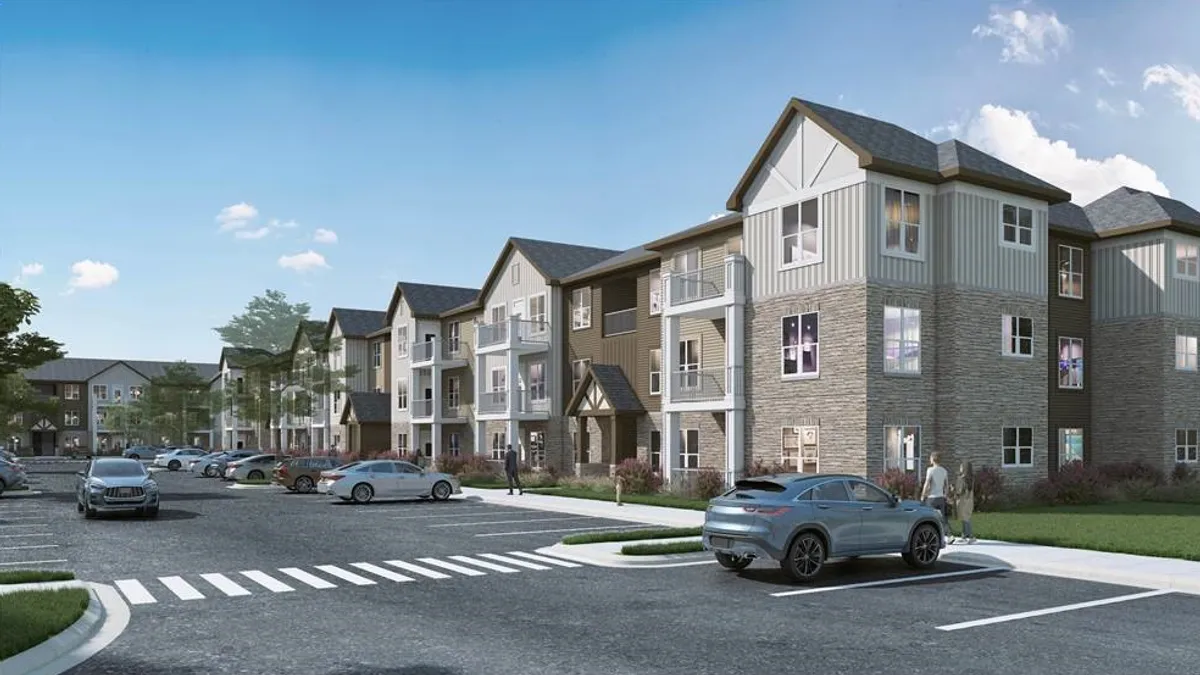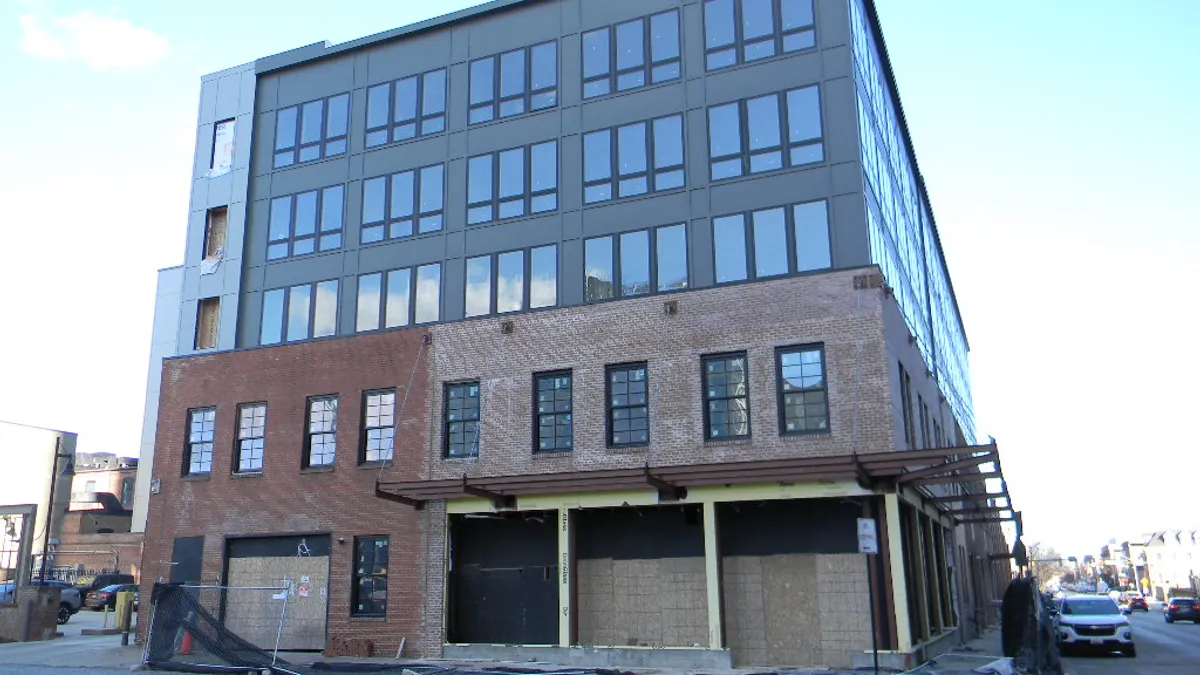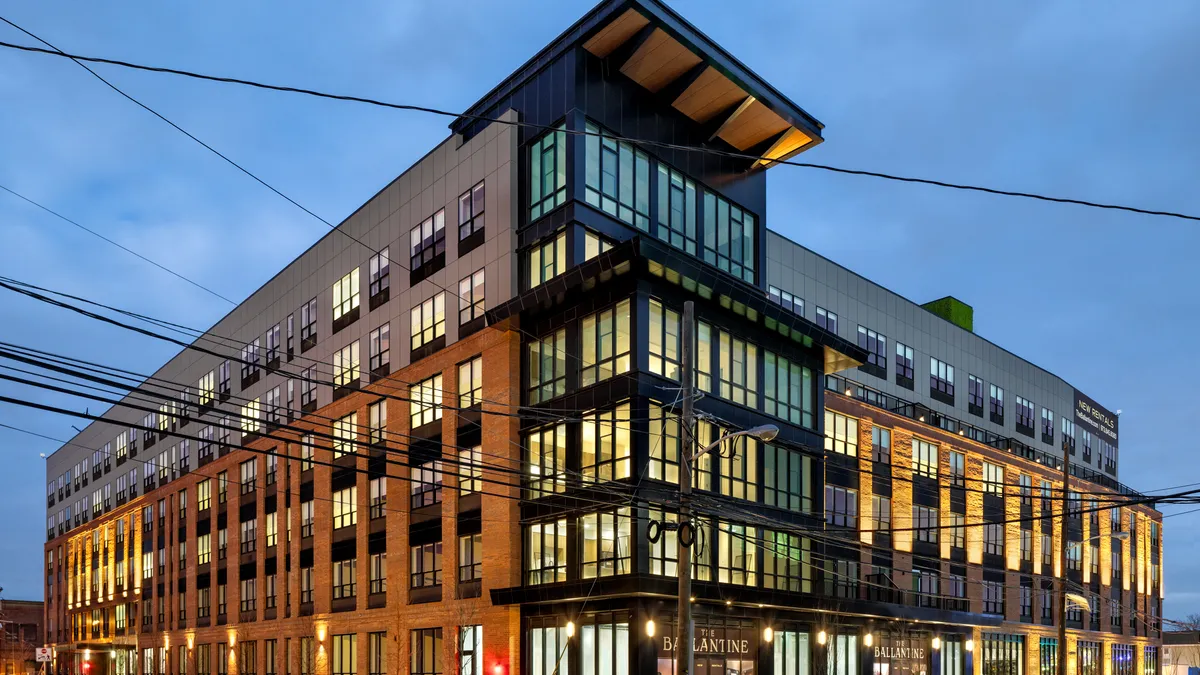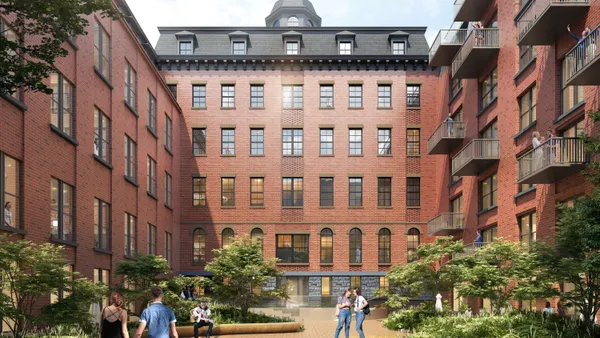A growing number of properties are cooking up novel ways to incorporate food and drink into their amenity offerings — from additions to standard lounge areas to entirely new concepts that blur the line between community and public spaces.
While refreshments have been a staple offering at multifamily communities for a long time, today’s renters are looking for something beyond the standard coffee or tea station. A number of properties have integrated self-service drink options into resident lounges in the form of taps, whether a cold brew tap in a coworking space or a beer or wine tap in a bar area.
At Toll Brothers Apartment Living’s Riverworks in Phoenixville, Pennsylvania, each resident is given a personalized 12-ounce growler and a card which entitles them to two free pours per week from an undercounter beer fridge and lockable tap in the resident lounge. Toll implemented a similar concept at its Notion property in Decatur, Georgia, which includes a wine tap at a coffee/wine bar station.
“The tap serves as a social hub … which activates the surrounding spaces,” said Mary Cook, whose firm, Chicago-based Mary Cook Associates, worked on the Riverworks and Notion properties. “The interplay between design and programming informed considerations such as seating configuration, table heights, lighting and materials.”
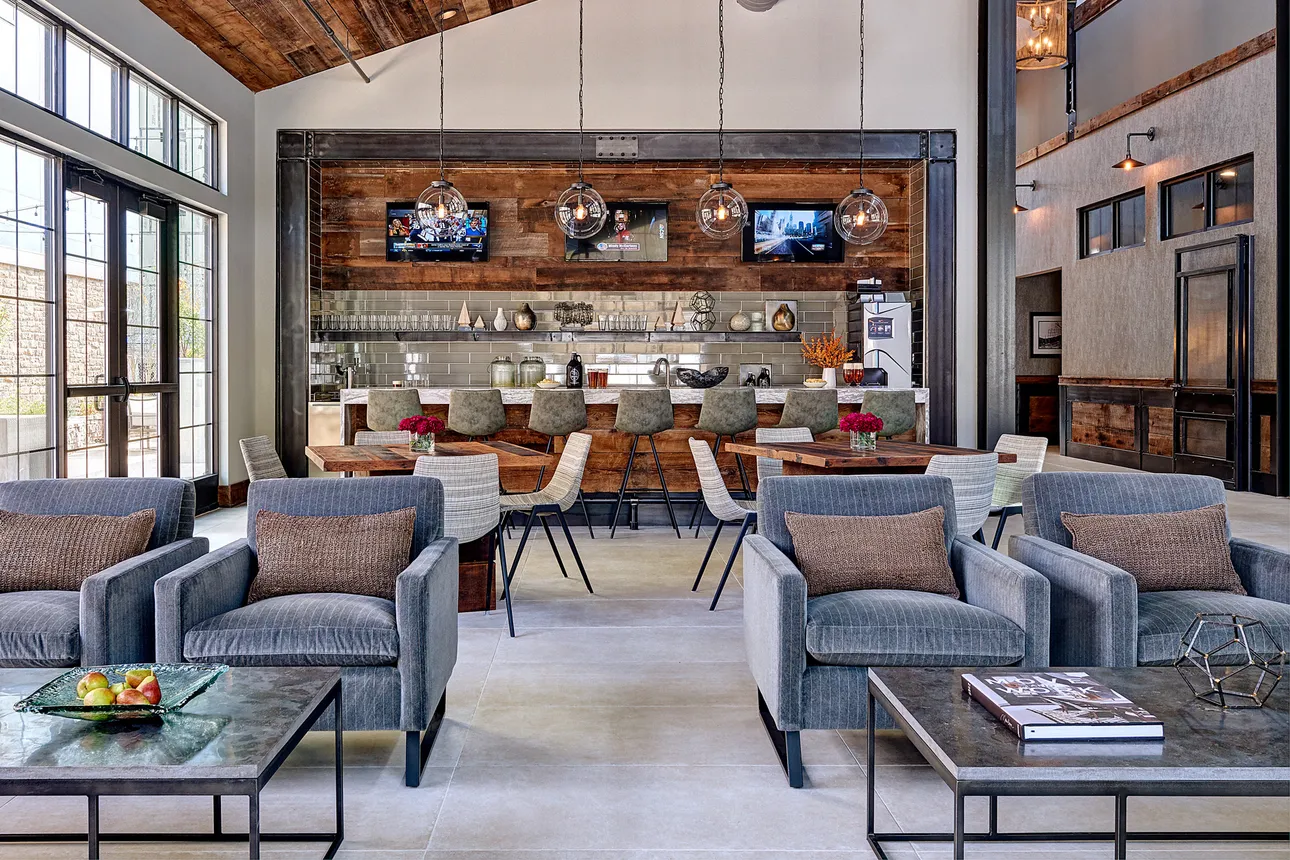
A similar concept centered around food rather than drink is grab-and-go markets, popularized in hospitality and now making their mark in multifamily. These can take the form either of a mini-market inside the lobby, with residents charging purchases to their units, or a high-concept vending machine.
“Vending machines offering fresh and healthy choices have gained popularity in multifamily as well as student housing communities,” said Cook.
Social gatherings
In addition to year-round offerings, food and drink can be used as a means to facilitate special events, whether they are simple social gatherings or even programming centered around food. These could include beer and wine tastings or a neighborhood food festival hosted by a local chef, according to Cook.
Residents have responded very positively to this level of social programming, according to Barb O’Steen, senior director of real estate at Charleston, South Carolina-based multifamily giant Greystar. This is especially true of higher-end communities, where expectations are high — food and drink are a level of service that adds value to the property, she said.
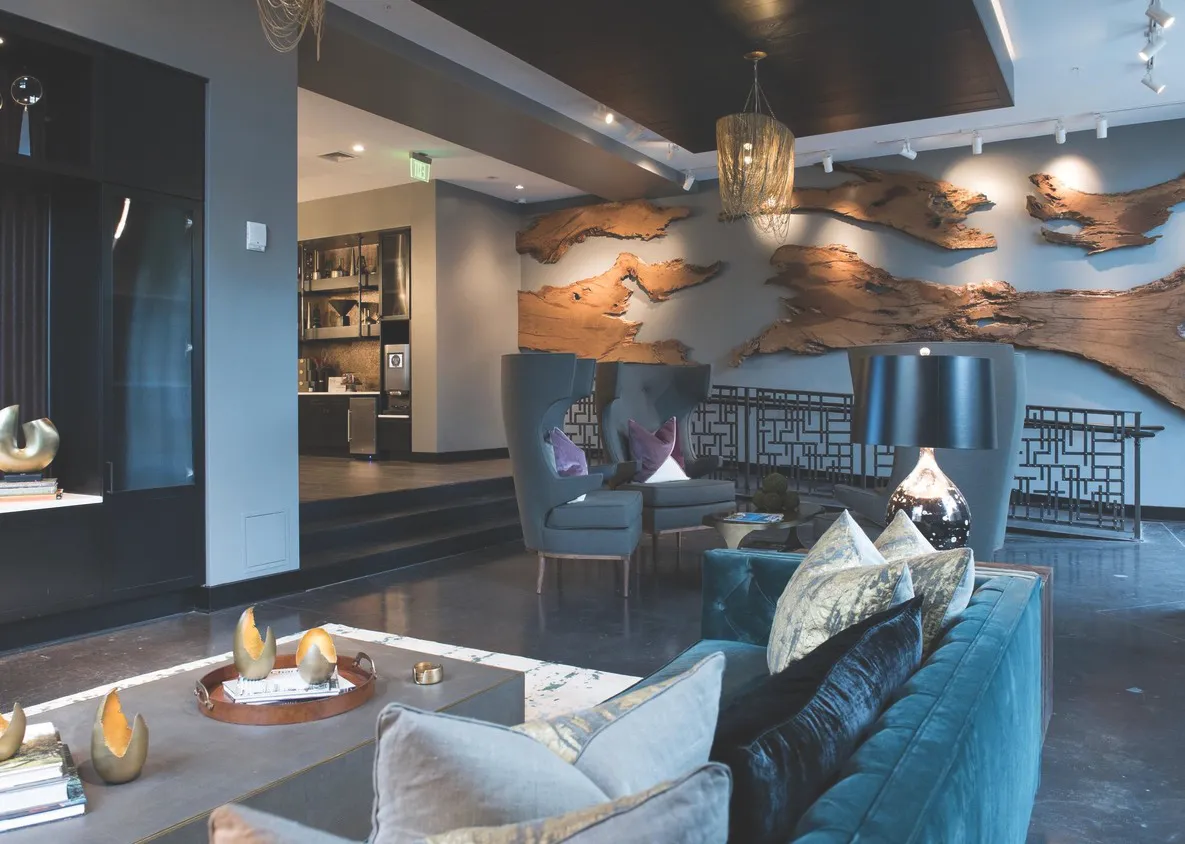
The Guild, a Greystar property located in the same development as the firm’s Charleston headquarters, provides fresh pastries daily to its residents, with the exception of Wednesdays, when a local juicer provides fresh-pressed juice. Daily happy hours and an annual oyster roast round out the calendar of events.
“Many of [our residents] are moving to new areas and find the opportunity to mix and mingle with neighbors very satisfying,” O’Steen told Multifamily Dive. “This typically allows for people to develop meaningful relationships at the community because of the opportunities and offerings within these programs.”
Blending community and public spaces
Beyond connecting residents to each other, food and drink can also bring the property in contact with the wider community. While food service retail tenants are a common trend, many properties have begun taking this service into their own hands.
For instance, the lobby at Society Orlando, an Orlando, Florida, property by New York City-based developer Property Markets Group, will feature a public cocktail lounge and restaurant operated by Orlando-based Thriving Hospitality. It will be open to residents and non-residents alike.
“Residents are drawn to the notion that their lobby will be a neighborhood social hub where they can enjoy craft cocktails and dishes for any occasion without leaving home,” Brian Koles, senior director of corporate development for Property Markets Group, told Multifamily Dive.
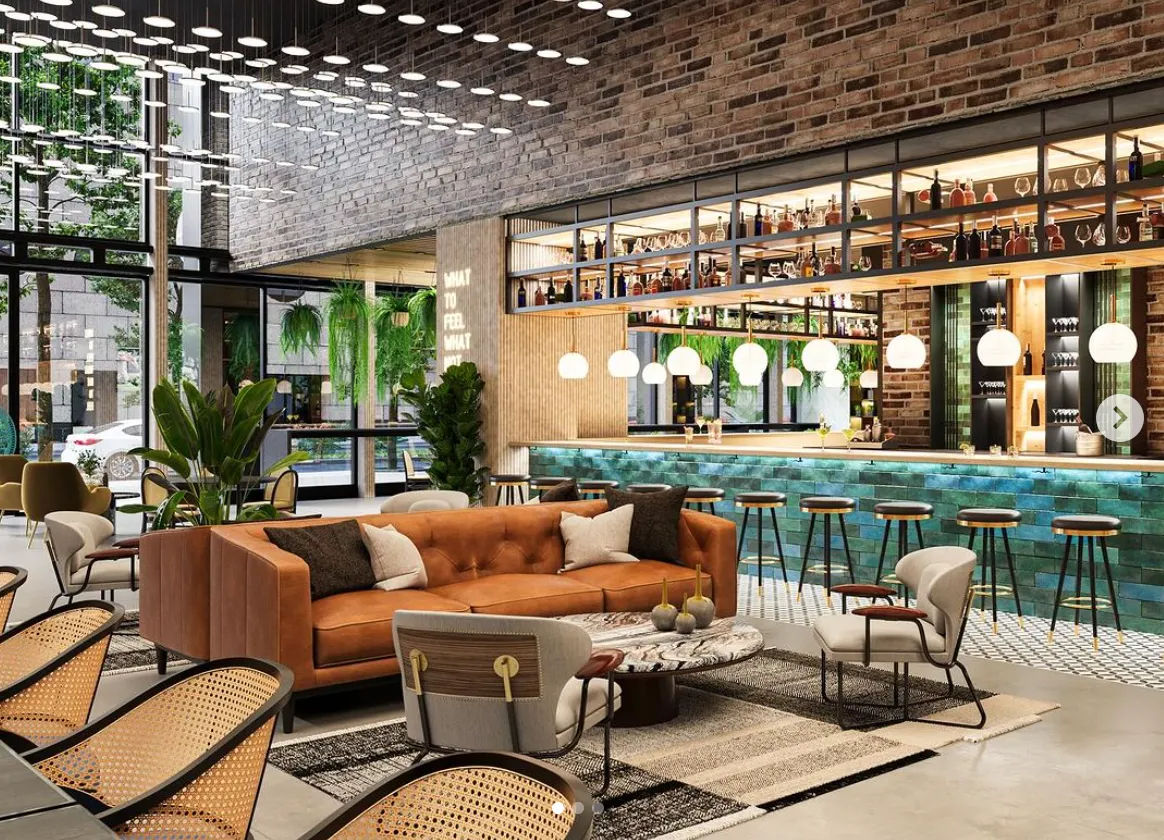
Columbus, Ohio-based property developer Lifestyle Communities has taken this notion and fully integrated it into its multifamily offerings, creating an entire suite of wholly owned retail and restaurant brands as tenants for its properties.
The Goat, its restaurant and bar brand, has 11 locations across LC properties in four cities — Columbus, Ohio; Nashville, Tennessee; Durham, North Carolina; and Austin, Texas. In addition to food and drinks, The Goat also hosts concerts, events, trivia nights and a volleyball league for residents and locals. Morning Ritual, its cafe, serves coffee and breakfast all day in five locations in Columbus, Nashville and Durham.
Overall, operators that take the extra time and care to elevate the food and drink experience have seen positive returns, leaving tenants feeling that their property is going a step beyond the norm.
“Our residents respond very favorably to refreshments as an integral part of the social program,” O’Steen said. “Residents view refreshments as hospitality and often that translates to a high-end or luxury-style offering that adds value.”
UPDATE: This story has been updated to include information on Greystar’s The Guild property and its refreshments.



